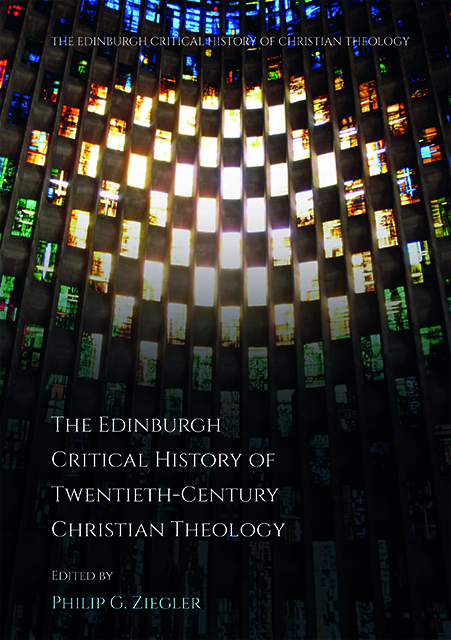Book contents
- Frontmatter
- List of Contents
- Notes on Contributors
- Editor's Introduction
- 1 Modern Theology in a Scientific, Historical Age
- 2 Tradition and Innovation
- 3 Scripture and Criticism
- 4 Reason, Method, System
- 5 Catholicism and Ecumenism
- 6 Fundamentalism and Evangelicalism
- 7 Synagogue, Sho’ah and State
- 8 Religion(s)
- 9 God
- 10 Spirit
- 11 Christ
- 12 Liberation and Freedom
- 13 The Secular – The Political: Augustine and Political Augustinianism in Twentieth-Century Political Theology
- 14 Globalisation after Empires: World Christianity and the Theological De-centring of Europe
- 15 War and Peace
- 16 Race and Black Theology
- 17 Sex and Gender
- 18 Hope
- Index
6 - Fundamentalism and Evangelicalism
Published online by Cambridge University Press: 14 July 2023
- Frontmatter
- List of Contents
- Notes on Contributors
- Editor's Introduction
- 1 Modern Theology in a Scientific, Historical Age
- 2 Tradition and Innovation
- 3 Scripture and Criticism
- 4 Reason, Method, System
- 5 Catholicism and Ecumenism
- 6 Fundamentalism and Evangelicalism
- 7 Synagogue, Sho’ah and State
- 8 Religion(s)
- 9 God
- 10 Spirit
- 11 Christ
- 12 Liberation and Freedom
- 13 The Secular – The Political: Augustine and Political Augustinianism in Twentieth-Century Political Theology
- 14 Globalisation after Empires: World Christianity and the Theological De-centring of Europe
- 15 War and Peace
- 16 Race and Black Theology
- 17 Sex and Gender
- 18 Hope
- Index
Summary
Introduction
‘Evangelicalism’ and ‘fundamentalism’ – terms coined in the 1820s and 1920s respectively – are both highly contested global movements. Their theological and ecclesial identities have been argued over extensively, as has the nature of the relationship between them. Fundamentalism was named initially for The Fundamentals (1910–15), a collection of conservative theological essays distributed with the help of Californian oil money to Protestant ministers worldwide. Counted among the contributors were a remarkably diverse range of evangelical theologians from both sides of the Atlantic, who could not all be easily dismissed as ‘wilfully purblind obscurantists’ or ‘bigoted ecclesiastics’. Yet fundamentalism's connection with the evangelical movement which brought it to birth has long been disputed. This chapter examines the theological rhetoric surrounding their relationship through a detailed case study of one particular outbreak of fundamentalist debate – in Britain in the 1950s – which is illustrative of the wider global phenomenon. It demonstrates how fundamentalism is a highly malleable but potent theological category, with strong emotive associations. This case study, from a mid-century English and predominantly Anglican context, reveals that the contested language surrounding fundamentalism and evangelicalism has as much to do with public image, and the struggle for ecclesial or cultural superiority, as with doctrinal distinctives. The British debate was paralleled in multiple other twentieth-century contexts.
The Billy Graham Factor
Fundamentalism is often associated with evangelical Nonconformity, vibrant among conservative American Baptists and Presbyterians, for example. Yet even the Church of England, noted for its comprehension of diverse doctrines, encompassed a lively network of conservative evangelicals in the 1920s and 1930s who displayed fundamentalist characteristics. Their influence soon dwindled, and the intense fundamentalist/modernist disputes of the interwar period seemed forever consigned to the past. By 1951, The Times could reasonably claim that the theological controversy over fundamentalism was now ‘almost stilled’. Two years later, at the Evangelical Fellowship of Theological Literature in Cambridge, Douglas Harrison (Archdeacon of Sheffield) observed that the traditional Protestant emphasis on the supreme authority of Scripture had proven ‘most vulnerable to the acids of historical criticism’. Much of older evangelicalism, and indeed of classical Anglicanism, was ‘near-fundamentalism’, he suggested, but he was glad that those tenden cies had now passed away.
- Type
- Chapter
- Information
- Publisher: Edinburgh University PressPrint publication year: 2022

